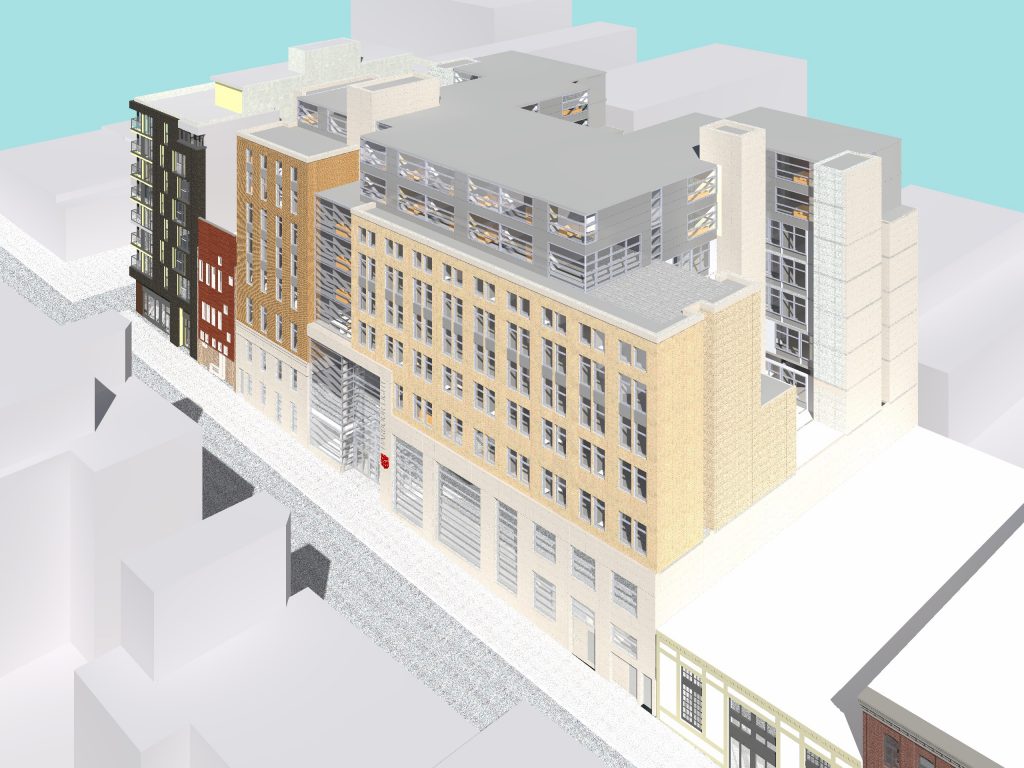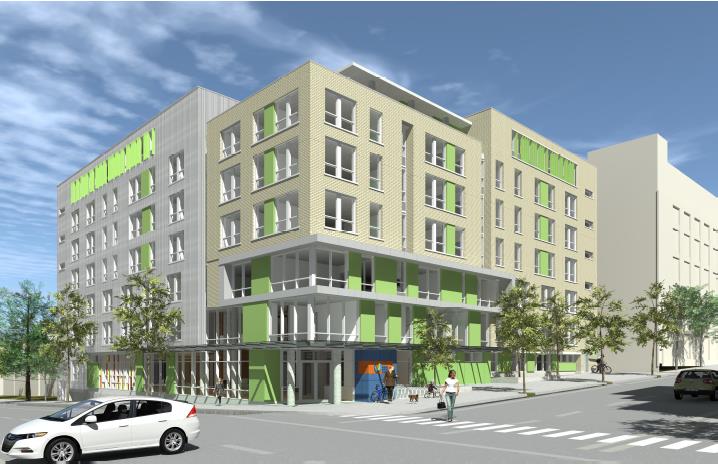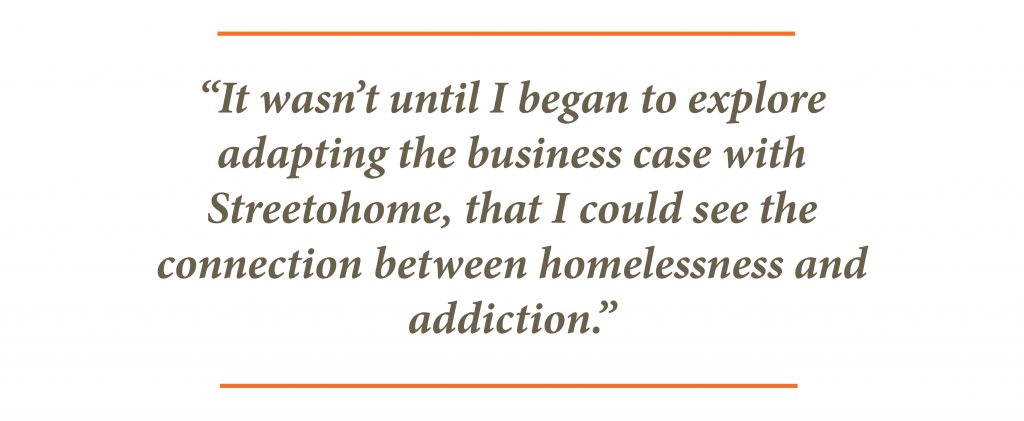Two years ago, Streetohome, thanks to in-kind support from KPMG, led the development of a business case for a new addiction recovery housing pathway – Addiction Recovery Community Housing (ARCH). The new model ensures supported transitions between early recovery housing (including withdrawal management), addiction treatment housing, recovery supportive housing and continuing self-care in the community (Recovery Community Centre). With fewer people falling out of the system at transition points, the ARCH model promises improved outcomes in terms of individuals’ housing, health & wellness, skills & training, employment as well as legal and advocacy goals.
Streetohome shared the business case far and wide. It was well received by three organizations – one rural (North Wind Wellness Centre) and two urban (Union Gospel Mission and Salvation Army Vancouver) – who were each in the midst of building and developing addiction recovery housing projects. The business case and related research confirmed for each, those components of their planned developments that aligned with evidence-based and innovative promising practices, as well as those that could be adapted for each of their models to improve outcomes for individuals struggling with addiction challenges.
“For the most part, the business case affirmed our convictions, which was encouraging,” says Dan Russell, Director of Programs, Union Gospel Mission (UGM). “It helped us realize we need to do more in terms of medical supports, and we’re working to incorporate medical partnerships into our service delivery.”

The redevelopment of Salvation Army Vancouver Harbour Light is expected to begin in late 2019, or early 2020, with a targeted completion in winter 2022.
“The business case really helped us to define the community space we wanted to have,” says Jim Coggles, Executive Director, Salvation Army Vancouver Harbour Light. “We’re proud of the fact that almost 30% of our staff are (treatment program) alumni, and we’ve always had a sense of community and try to stay connected with each other. The recovery community centre is going to take this to the next level.”
Continued Connection to Housing and Supports
Withdrawal management, addiction treatment, recovery housing and continuing self-care in the community are not typically integrated as one system to promote smooth transitions from one to the other. A consequence of this is a risk of falling out of housing and becoming disconnected from supports while navigating the next rung on a recovery housing ladder. Long wait lists contribute further to housing and care system disengagement. ARCH manages the flow along the recovery housing pathway to optimize supply, manage demand, and provide warm hand-offs along the addiction recovery housing continuum. The end result is improved continuity of housing and care, and improved recovery outcomes.
“These individuals have often struggled for years or decades – they didn’t just enter into addiction overnight. To experience the healing and recovery they need, for most, it’s just not going to happen simply through a 90-day program,” says Jim. “To make a lasting impact in someone’s life, they need to be with you as long as it takes for them to take that next step forward, and they need to continue to be wrapped in supports. The ARCH model does just that.”
Both Salvation Army and UGM are creating addiction recovery housing pathways for vulnerable women in Vancouver. Salvation Army is building 24 dedicated addiction treatment housing spaces for women and adapting the care model from their successful men’s program. UGM will be building 36 addiction recovery-housing spaces in their new Women and Families Centre, that will provide women-focused wraparound services under one roof, including daycare and employment training.

Groundbreaking for the Women and Families Centre was held in May 2019. Targeted completion is scheduled for late winter 2020 or early spring 2021.
“A longer integrated program allows residents to stabilize and move along the continuum from recovery housing to independent housing within a safe and known environment,” says Dan. “There’s also time to do career training, allowing for increased ability to move on to independent market or social housing of their choice, and financial security for these women and their families.”
The Importance of Community
Isaac Hernandez, Executive Director, North Wind Wellness Centre, has adapted the business case to fit the needs of communities in Northeastern BC. He believes that implementing the ARCH model in Farmington, BC will stem migration to Vancouver to access addiction treatment services for those living in communities within the Northeastern part of the province.
“There is something wrong with individuals having to leave their home community for services. They are becoming separated from: their familiar connection to the land; their extended families, social connections, and their place in the community – all that they identify with and rely on for strength and guidance,” says Isaac. Individuals who relocate for services may become isolated and worse yet, at risk for homelessness.
“It wasn’t until I started to explore adapting the business case with Streetohome, that I could see the connection between homelessness and addiction,” he says. “I began to think about the problem and potential solutions in a different way.” Isaac suggests that the ARCH model can be adapted for those living in Northeastern BC to address addiction recovery housing challenges while also helping to address preventable homelessness in Vancouver due to migration.
Urban addiction recovery housing models may benefit from the wisdom of the north. A sense of belonging may be missing in urban centres where it is not typically a compelling feature of the community. However, if ‘community’ can be created, it may become a deciding factor for some to continue on their recovery journey.
“There are many keys to successful long-term recovery and life off the street, and one of the most important is community. Our guests need a safe, non-judgmental environment in which they are both supported and challenged to grow into healthy living patterns,” says Dan.
Jim agrees – “You can have a great program and a great building and great staff, but you need community and the positive healing influence it brings. People aren’t meant to live in isolation – they need connection and encouragement from their community.”
To download a copy of the business case for Streetohome’s Addiction Recovery Community Housing (ARCH) Model, please go to:
Streetohome – http://bit.ly/STHARCH
Homeless Hub – http://bit.ly/HomelessHubARCH
North Wind Wellness Centre – http://bit.ly/NWWCARCH

